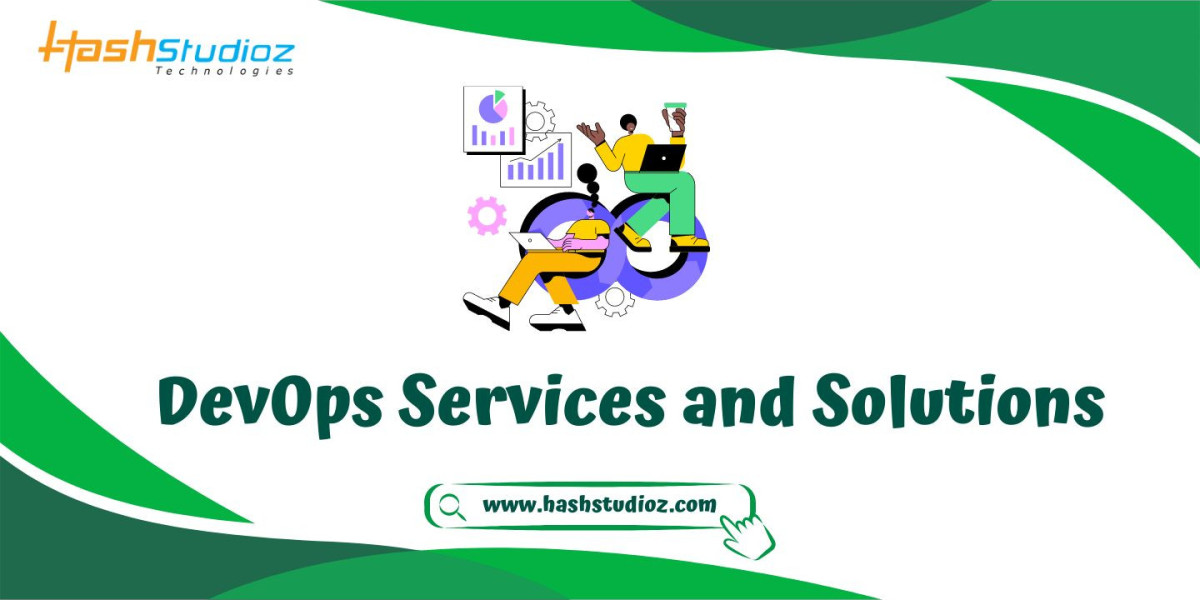Businesses are constantly under pressure to innovate, adapt, and grow quickly in today's fast-paced digital market in order to satisfy changing client expectations and stay ahead of the competition. Embracing DevOps methods has become more crucial for companies looking to improve their software delivery operations' agility, effectiveness, and dependability. Nevertheless, a successful DevOps implementation calls for a comprehensive strategy that takes into account culture, procedures, and tools in addition to simply integrating new tools and technology. Here's where expert DevOps services come into play.
Introduction to DevOps
DevOps, a portmanteau of "development" and "operations," is a set of practices that aims to automate and integrate the processes between software development and IT operations teams. The primary goal of DevOps is to shorten the system development life cycle while delivering features, fixes, and updates frequently, in close alignment with business objectives.
DevOps emphasizes collaboration, communication, and integration between development, operations, and other stakeholders involved in the software delivery pipeline. By breaking down silos, automating repetitive tasks, and fostering a culture of continuous improvement, DevOps enables organizations to deliver high-quality software more rapidly, reliably, and efficiently.
The Need for DevOps Professional Services
While the benefits of DevOps are well-documented, implementing and scaling DevOps practices across an organization can be challenging. Many companies lack the internal expertise, resources, and experience necessary to navigate the complexities of DevOps adoption effectively. This is where DevOps professional services providers come into play.
DevOps professional services firms specialize in helping organizations design, implement, and optimize DevOps practices tailored to their unique requirements and objectives. These firms typically employ teams of experienced consultants, engineers, and architects with deep expertise in DevOps methodologies, tools, and best practices.
Key Components of DevOps Professional Services
DevOps professional services encompass a wide range of offerings designed to support organizations at various stages of their DevOps journey. Some of the key components of DevOps professional services include:
- Assessment and Planning:
- DevOps consultants conduct an in-depth assessment of the organization's existing software development and IT operations processes, tools, and culture.
- They identify bottlenecks, inefficiencies, and areas for improvement, as well as opportunities to streamline workflows, automate manual tasks, and enhance collaboration.
- Based on the assessment findings, DevOps consultants develop a tailored roadmap and implementation plan outlining the steps needed to achieve the organization's DevOps goals.
- Toolchain Selection and Integration:
- DevOps professional services providers assist organizations in selecting the right tools and technologies to support their DevOps initiatives.
- They help evaluate and integrate tools for version control, continuous integration, continuous delivery, automated testing, infrastructure as code, monitoring, and logging, among others.
- By integrating disparate tools into a unified toolchain, organizations can automate and orchestrate their entire software delivery pipeline, from code commit to production deployment.
- Culture and Organizational Change:
- DevOps is as much about culture as it is about technology. DevOps professional services providers help organizations foster a culture of collaboration, transparency, and accountability across development, operations, and other functional teams.
- They facilitate workshops, training sessions, and coaching programs to educate stakeholders about DevOps principles, practices, and benefits.
- DevOps consultants work closely with leadership to drive organizational change, break down silos, and overcome resistance to change, paving the way for a more agile and responsive organization.
- Automation and Orchestration:
- Automation lies at the heart of DevOps. DevOps professional services providers help organizations automate manual, repetitive tasks throughout the software delivery lifecycle, reducing the risk of human error and accelerating time to market.
- They help implement infrastructure as code (IaC) practices using tools like Terraform, Ansible, or Puppet to provision and manage infrastructure resources programmatically.
- By automating provisioning, configuration, deployment, and testing processes, organizations can achieve greater consistency, reliability, and scalability in their software delivery pipeline.
- Continuous Integration and Continuous Delivery (CI/CD):
- Continuous integration (CI) and continuous delivery (CD) are core DevOps practices aimed at delivering code changes more frequently, reliably, and efficiently.
- DevOps professional services providers help organizations establish CI/CD pipelines that automate the building, testing, and deployment of code changes across development, testing, staging, and production environments.
- They configure CI/CD tools such as Jenkins, GitLab CI/CD, or CircleCI to trigger automated builds, run tests, and deploy applications in a repeatable and auditable manner, enabling faster feedback loops and shorter time to market.
- Monitoring and Analytics:
- Effective monitoring and analytics are essential for ensuring the performance, availability, and security of applications and infrastructure in production.
- DevOps professional services providers help organizations implement monitoring and observability solutions that provide real-time insights into the health and performance of their systems.
- They configure tools like Prometheus, Grafana, ELK Stack (Elasticsearch, Logstash, Kibana), or Datadog to collect, analyze, and visualize metrics, logs, and traces, enabling proactive detection and resolution of issues.
Benefits of DevOps Professional Services
Partnering with a DevOps professional services provider offers several benefits for organizations looking to scale their DevOps initiatives:
- Accelerated Time to Market:
- By streamlining processes, automating tasks, and fostering collaboration, DevOps professional services help organizations deliver new features, fixes, and updates to market faster, gaining a competitive edge.
- Improved Quality and Reliability:
- DevOps practices such as continuous integration, automated testing, and infrastructure as code help improve the quality, reliability, and stability of software systems, reducing the risk of defects and downtime.
- Increased Efficiency and Productivity:
- Automation and orchestration enable organizations to eliminate manual, time-consuming tasks, freeing up resources to focus on innovation and value-added activities, thereby boosting efficiency and productivity.
- Enhanced Scalability and Resilience:
- DevOps professional services help organizations design scalable, resilient architectures that can adapt to changing demands and withstand failures gracefully, ensuring business continuity and customer satisfaction.
- Cost Optimization:
- By optimizing processes, reducing waste, and maximizing resource utilization, DevOps professional services help organizations lower operating costs and achieve better return on investment (ROI) from their technology investments.
- Cultural Transformation:
- DevOps is not just about technology; it's also about culture. DevOps professional services providers help organizations foster a culture of collaboration, innovation, and continuous improvement, driving positive change throughout the organization.
In conclusion, DevOps professional services play a crucial role in supporting organizations' growth and success in today's digital economy. By providing expertise, guidance, and support throughout the DevOps journey, professional services firms help organizations overcome challenges, accelerate innovation, and achieve sustainable competitive advantage. As businesses continue to embrace DevOps as a strategic imperative, the demand for DevOps professional services is only expected to grow, driving further innovation and evolution in the field.


